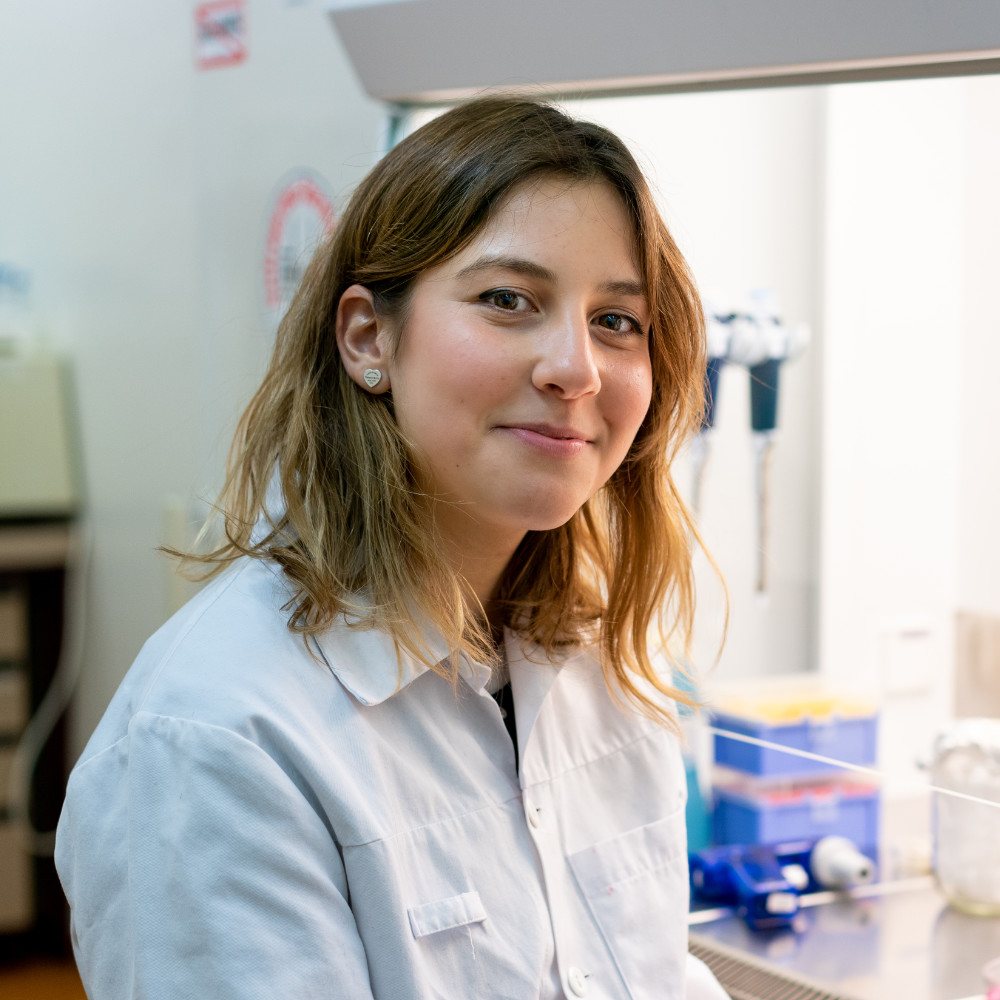Could you briefly introduce yourself?
I am Ilaria Cocchiararo, I come from Reggio Emilia, in the north of Italy. I just started my PhD, in September 2020, in Perrine Castets’ group within the BIOMED program. We work on neuromuscular junctions. I was recruited during the Summer Call, in the middle of the COVID lockdown – that was all a bit stressful, everything became virtual…
What were your scientific/academic reasons for applying to Geneva?
I did my Master thesis here at UNIGE, within the framework of an ERASMUS program. I worked in the Scapozza lab in pharmaceutical sciences, and I really enjoyed my time in this large, multidisciplinary, interactive group. Geneva is known to be an outstanding research environment, and I had liked it here, so it was clear to me that I would apply. I wanted to stay in the muscle field, but when I applied through the call, I did not know which labs were recruiting. Then I found out Perrine Castets was recruiting, which was perfect.
What do you like about (life in) Geneva/Switzerland?
I love the city, the lifestyle: there is a professional, serious vibe, but it is also a very artistic place, with a lot of art galleries. I also love the fact that wherever you are, you can see water (the lake or at least the Jet d’Eau) and the mountains. I work long hours, but I still manage to always keep time for sports. I am a sporty person and take part in the UNIGE offer, volleyball, fitness, tennis. And I volunteer at various festivals (Festival de Genève, Black Movie, GIFF, Antigel…) as a hostess. I was introduced to all this through my ERASMUS colleagues.
How is your supervision going? How is the atmosphere in your group?
We have a weekly face-to-face meeting with the professor, and a weekly lab meeting where all group members present. We are only 6 so the supervision is very close, which is good in the beginning. Currently I am being trained in all techniques until I am fully independent. I appreciate that I can talk to my supervisor a lot, that I can share my ideas and be heard. In the team, we are really different people, but these differences make for a well-balanced group.
Do you have any opportunities to teach, or to go to conferences?
We need to gather 20 ECTS over the course of the PhD, and this one thing I really appreciate about the UNIGE environment – there are so many things to follow, modules, seminars, lectures, going to conferences…I really like the fact that we can acquire knowledge through so many different ways and in a variety of fields.
What is the biggest change when moving from a Master project to a PhD thesis project?
First, the project is completely mine. Then, I am acquiring more experience and more knowledge because it is a vaster, longer project. I also am more aware that I need to take this project to the end, so I have to give 100%!
How do you deal with the frustration inherent to research?
Anyone who starts a PhD probably already knows that there are frustrating moments. I tend to talk to other PhD students and share my problems with them. A PI told me something I found brilliant: when you stumble upon a problem, look at it as an opportunity to finding different angles, to taking a step back and reflecting on the problem from a different point of view.
Is there any advice, anecdote, experience, … from your PhD life that you would like to share with prospective PhD students?
Hang out with ERASMUS students if you want to meet people and get your social life started (geneva.esn.ch). Choose the scientific area that you like the most, but make sure there is mutual chemistry with the group leader and the team. You will need to spend 4 years with them, so even if you like the project but you do not mesh with the lab…I would rather go for a little less interesting project but a great lab.
